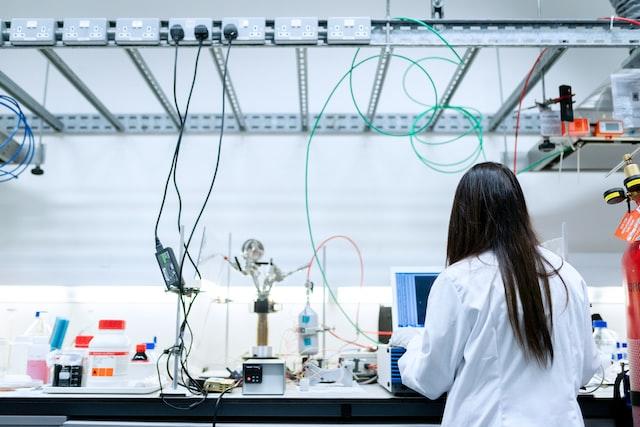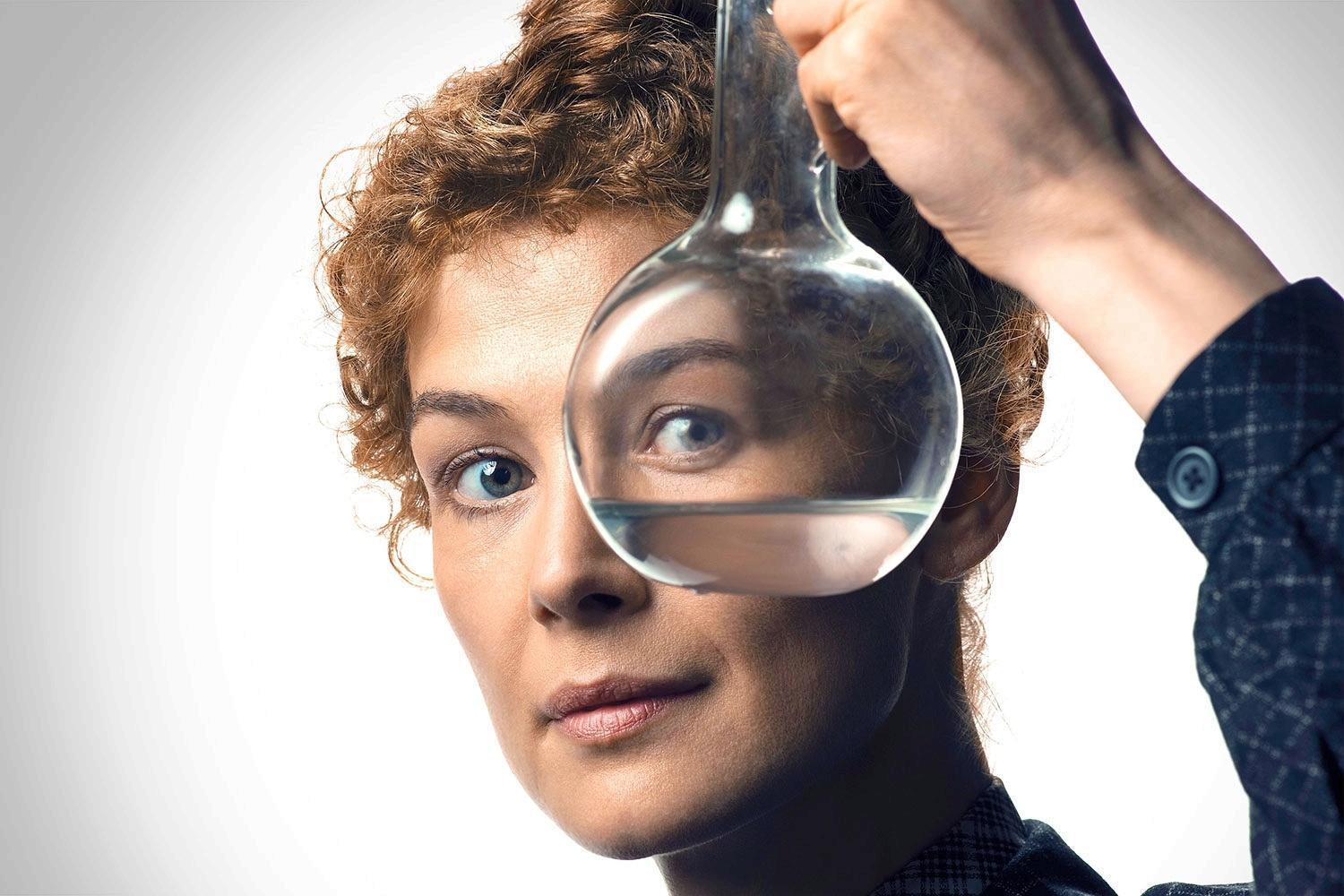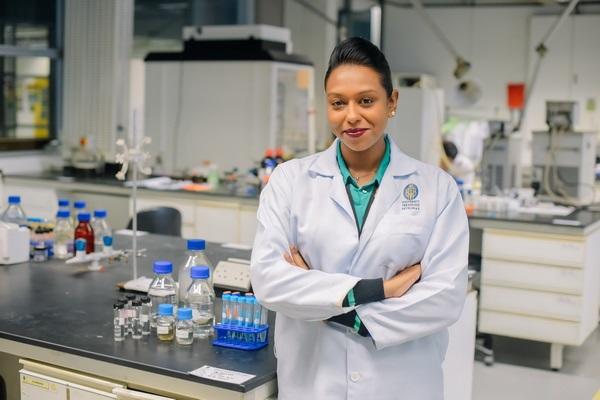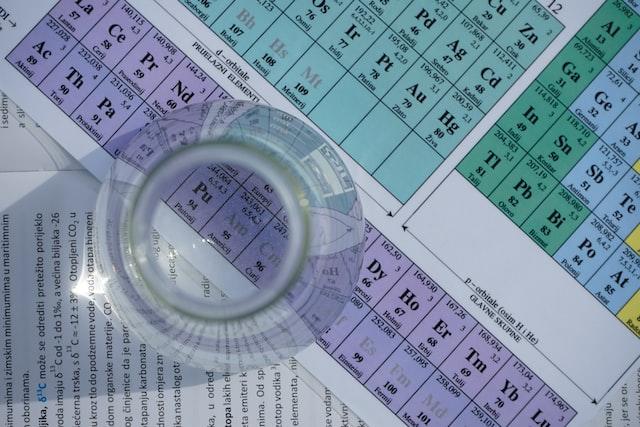Do you know what is one of the major factors that encourage individuals to become researchers and scientists in the first place?
The answer is pretty straightforward.
A keen interest, continuous curiosity and passion towards the surrounding world since childhood.
Famous scientists such as Albert Einstein, Thomas Edison and Issac Newton have become role models to many students who are learning Science.
When it comes to learning the core principles of chemistry now, we can't shy away from talking about chemists who have devoted their time and persistent effort. In fact, some of their names have been immortalised in terms of elements' names like Mendelevium after Dmitri Mendeleev as well as non S.I units like Curie after Marie Curie and Pierre Curie.
In this article, we will embark on an adventure of discovering the contributions and research work of various chemists in the local and international scene.

What's The Significance Of Research & Development In The Pursuit Of Sciences?
But first, let's talk about the three important reasons why scientists and researchers play such important roles in our society.
Point 1: To come out with new products or new discoveries in the respective field
Call them pioneers, innovators or inventors, scientists need to demonstrate persistence during the research process. They have to conduct multiple experiments to ensure the validity of the results through calculations, measurements, testing of various specimens, and mixing of compounds before they reach their final breakthrough.
For example, the continuous research by Louis Pasteur, a French chemist in the field of fermentation and germ theory led him to develop vaccine-related studies where he eventually developed vaccines for various diseases such as rabies and cholera.
Point 2: To improve a current product/services
This is an extremely relevant point in the medical and drug industry. Throughout the years, the pharmaceutical and medical lines have benefitted from the roles of medicinal chemists and researchers in terms of improving the drug discovery process for diseases.
Furthermore, with modern technology intervention and the application of green chemistry in the research and development process, more sustainable and environmental-friendly drugs and treatment methods can be used to treat patients in the long run.

Photo by
ThisisEngineering RAEng on Unsplash
Point 3: To contribute to a nation's economy
When new products and new innovations are continuously introduced, both the public and private sectors will benefit from this phenomenon.
As mentioned in the first point, new products and new research will lead to new job opportunities, enhance the overall productivity of workers (save time and resources) as well as encourage local and global collaboration of various industries to keep up with the demands of the consumers and current market.
Discover the best platforms to learn Chemistry here.
Why Should You Learn About The Curie Family Legacy in the Chemistry Field?
If you have ever taken an X-Ray, remember that it's all thanks to the contribution of the Curie family.
The Curie family is one of the most (if not the most) famous and established chemists that paved the research of radioactivity.
Let's learn some interesting facts about the Curie family and their legacy in the field of Chemistry.
Fact 1: Marie Curie was the first woman to win the Nobel Prize twice
Marie Curie made waves in Nobel Prize history by winning two Nobel Prizes in two different categories: Physics and Chemistry. She was also the first female scientist to win the Nobel Prize in 1903 (together with her husband, Pierre Curie). She won her second Nobel Prize in 1911.
Both of her Nobel Prizes were awarded in recognition of her research and discovery in radiation, the discovery of radium (Ra) and polonium (Po) as well as the study of the isolation of radium.

Source: The Times
Fact 2: Marie Curie's daughter and son-in-law coined the concept of artificial radioactivity and also won another Nobel Prize
The Curie family proved that the apple doesn't fall far from the tree.
Marie Curie's elder daughter, Irène Joliot-Curie followed in her parent's footsteps to continue researching on radioactivity.
In 1923, she was awarded the Nobel Prize in Chemistry alongside her husband, Frédéric Joliot-Curie for their discovery of artificial radioactivity.
Altogether, there are five Nobel Prize winners in the Curie family and no family has ever come close to their record.
If you are interested in the field of radioactivity and the study of atoms, you should certainly read up on the detailed contribution and findings of the Curie family.
To boost your overall knowledge in this subject, don't forget to explore these amazing resources to study Chemistry.

What You Should Know About The Periodic Table of Elements?
Let's get real.
Without the periodic table of elements, a lot of things about what we are studying in today's chemistry will not make sense. There are a whole lot of chemical elements, a total of 118 elements were discovered as of 2022.
The periodic table was introduced by a Russian chemist, Dmitry I. Mendeleyev in which the elements are arranged according to their atomic number.
The elements are also categorized according to groups and share similar properties whereby elements that belong to the same vertical list are considered a group. There are a total of 18 groups across the periodic table.
For example, Group 1 elements (the far left) consist of hydrogen and alkali metals such as hydrogen, lithium, sodium, potassium, rubidium and a few more elements. On the other hand, Group 18 elements (the far right) consist of noble gases such as helium, argon, krypton, xenon and radon.
Another way the elements are categorized is according to periods where elements of the same horizontal list (row) are linked together. Elements that are in the same row have the same number of electron shells.
For instance, Period 1 elements consist of hydrogen and helium whereas Period 2 elements consist of lithium, beryllium, boron, carbon, nitrogen, oxygen, fluorine and neon.
Can't seem to find your motivation to study Chemistry and remember these periodic table facts? Check out the benefits of mastering Chemistry here.
Getting To Know Some Famous Chemists/Scientists In Malaysia
Most of us are familiar with Western chemists and scientists but as a matter of fact, there are also many talented and established chemists who have contributed greatly to the research and development of chemistry studies in Malaysia.
Here are two Malaysian chemists that you should know.
Tan Sri Augustine Ong Soon Hock
First on our list is none other than Tan Sri Augustine Ong. He attended the University of Malaya from 1954 and 1959 and graduated with a Bachelor of Science and subsequently a Masters in Science. A passionate researcher and lover of knowledge, he pursued his PhD studies in Organic Chemistry at the University of London King’s College in 1961.
His expertise lies in the field of lipid chemistry and also palm oil studies (especially in Malaysia). Some of his research topics over the years include lipids research of the olein-stearin separation method, conversion of palm oil to biodiesel and many more.
To honour his contribution to the field of chemistry research in Malaysia, Tan Sri Augustine Ong was awarded the Merdeka Award in 2012.
Dr Magaret Sivapragasam
An emerging talent in the chemistry research world, Dr Margaret Sivaprasagam is no stranger when it comes to winning multiple awards and honours for her contributions and findings. Some of her past research includes studies on ionic liquids, biosurfactants, recombinant proteins and many more.
In 2019, Dr Margaret became the first Malaysian to be listed under the International Union of Pure and Applied Chemistry (IUPAC)'s Periodic Table Of Younger Chemists for her continuous passion and work in the field of chemistry.

Source: Varnam Malaysia
She previously worked as a research doctoral scientist at Universiti Teknologi PETRONAS. Currently, Dr Margaret is working as a senior lecturer at Quest University in Perak, Malaysia.
How Can You Take Your Chemistry Skills To to The Next Level?
We all know the cliche. Every master was once a beginner.
Every established scientist and chemist started from zero. While they may have an extraordinary passion or a somewhat in-born inclination towards the sciences, they still couldn't run away from mastering the basics from their first Chemistry lesson in school or during their self-study sessions.
Having said that, here are a few tips for you if you are thinking of an alternative method of upskilling yourself in Chemistry apart from your regular Chemistry school lessons.
Tip 1: Find a reliable Chemistry tutor
A private tutor can help you to structure your learning and revision process according to your ability and potential. It's also a flexible and student-friendly way to learn the subject at your own pace.
Not sure where to start? Start browsing some Chemistry tutor profiles at Superprof, a platform that connects passionate educators and students from all across the globe.
Tip 2: Read up and watch as much Chemistry related content to update yourself
We are living in a world where it's super easy to access all kinds of research, and findings with just a few clicks. In fact, new contents and studies of Chemistry are constantly being updated as you are reading now.
Stay curious and soak in as much knowledge as you can.
Tip 3: Join as many chemistry experiments, competitions or "field trips"
The key here is to build consistent exposure and experience. It is worth noting that Chemistry is a subject that is not solely theoretical. If you aspire to be a chemist one day, it's important to put yourself out there and get hands-on as well as meet different people who share the same passion as you.
Don't forget to learn more about the different branches of chemistry in this article.
We hope you are inspired and enlightened by the contributions of the mentioned chemists in this field of study. All the best in pursuing your studies in Chemistry. Who knows after a few years, you could be the next big name in Chemistry research.
Summarise with AI:















